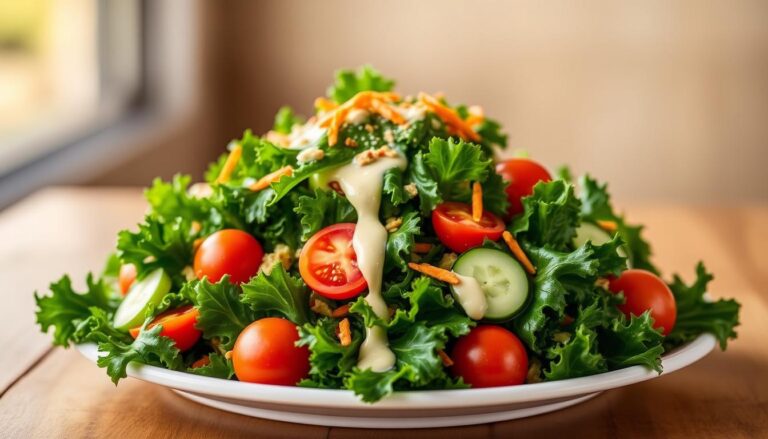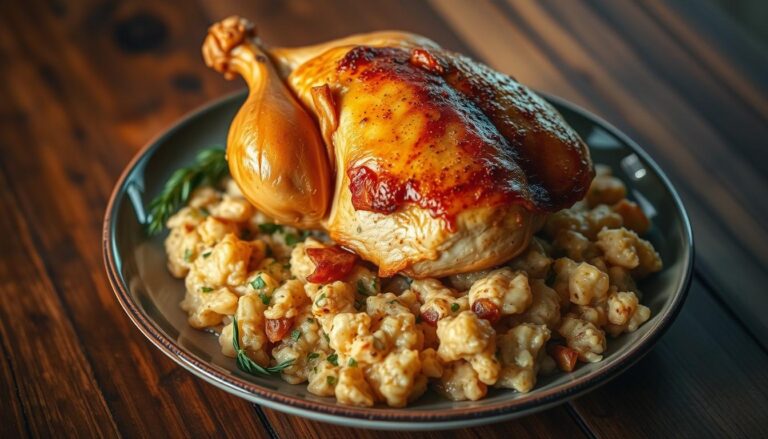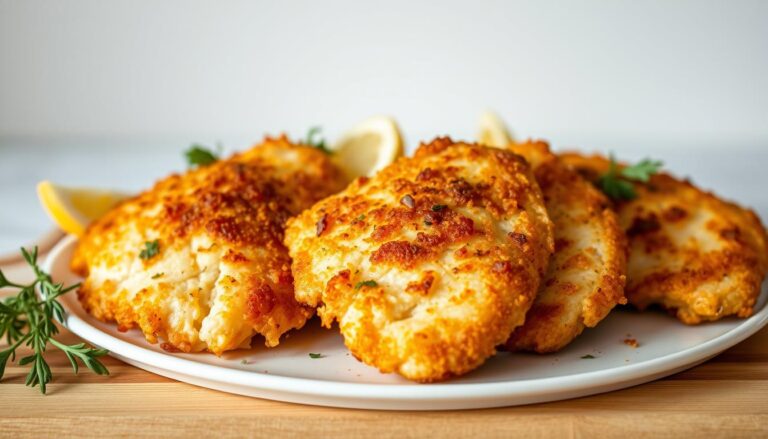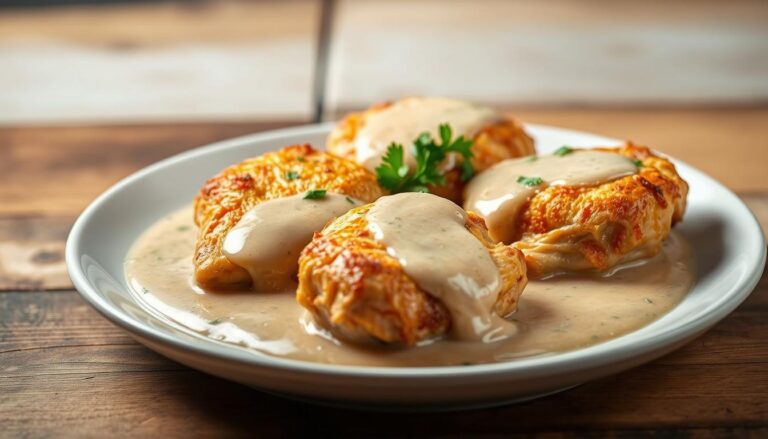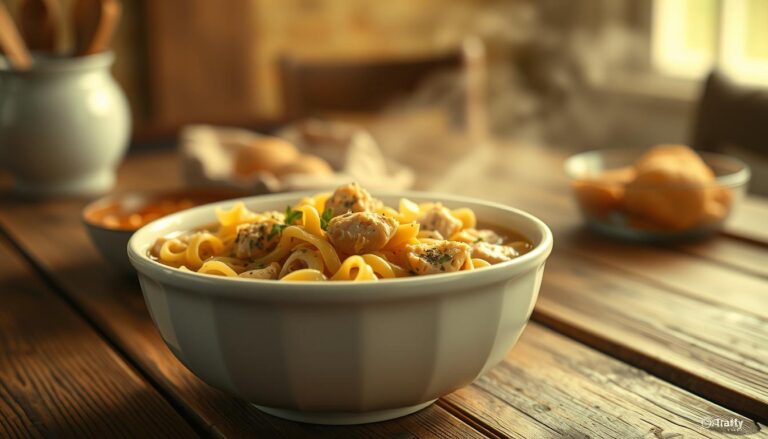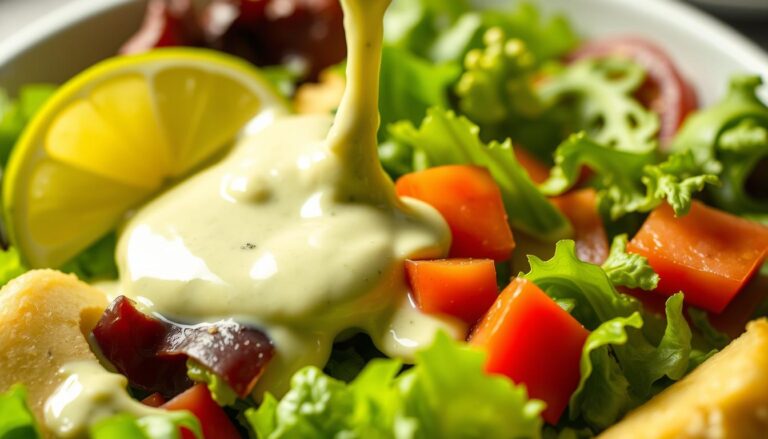How to Brine Chicken Wings for the Best Taste Ever
Ever wondered why some wings stay juicy while others turn dry and bland? The secret lies in a simple yet powerful technique—brining. Soaking meat in a saltwater solution locks in moisture, enhances tenderness, and amps up flavor like nothing else.

The ideal ratio? One cup of salt per gallon of water creates a balanced 6.25% concentration. For best results, let the wings soak for 2-4 hours. This method works whether you’re grilling, baking, or air frying.
Want to take it up a notch? Try a whisky-infused brine. Brands like Pendleton Whisky add a rich, smoky depth that elevates every bite. The possibilities are endless when you master this game-changing step.
Key Takeaways
- Brining keeps meat moist and flavorful.
- Use a 6.25% salt-to-water ratio for optimal results.
- Soak for 2-4 hours for the best texture.
- Works with grilling, baking, or air frying.
- Whisky brines add unique depth.
Table of Contents
Why Brining Chicken Wings Makes All the Difference
Science proves why soaking meat in saltwater works wonders. It’s not just about flavor—it’s a texture game-changer. Here’s how the right mix of salt and sugar elevates every bite.
The Science Behind Juicier Meat
Salt triggers osmosis, pulling water into the meat cells. This locks in moisture, preventing dryness during cooking. The process also breaks down muscle protein, relaxing fibers for unmatched tenderness.
Dry brining takes it further. A sprinkle of kosher salt draws out natural juices, then reabsorbs them with seasonings. The result? Deeply flavored, succulent meat every time.
How Salt and Sugar Enhance Flavor and Texture
While salt manages moisture, sugar plays a dual role. It balances salt’s intensity and fuels the Maillard reaction—the chemical process behind golden, caramelized crusts.
For crispy skin, patting dry post-brine is non-negotiable. Excess surface moisture steams instead of browns. A mix like The Spruce Eats’ (with vinegar and red pepper flakes) adds tang and heat without overpowering.
“Brining is the bridge between bland and brilliant. It’s chemistry you can taste.”
Essential Ingredients for the Perfect Brine
The foundation of a great brine lies in choosing the right ingredients. Salt is the star, but extras like herbs and spices elevate the flavor profile. Here’s how to build a balanced mix.
Salt Types: Kosher Salt vs. Table Salt
Kosher salt dissolves faster and offers better control. Its coarse grains mean ½ cup equals ⅓ cup of table salt. Table salt’s fine texture risks over-salting if not measured precisely.
Optional Add-Ins: Sugar, Herbs, and Spices
Beyond salt, these extras add depth:
- Sweetness: Maple syrup or brown sugar (⅓ cup max) balances salt without cloying notes.
- Heat: Red pepper flakes (1 tbsp) or black peppercorns add a kick.
- Aromatics: Fresh rosemary, thyme, or garlic cloves infuse complexity.
For tenderizing, The Spruce Eats recommends ¼ cup white wine vinegar. Whisky like Pendleton (12 oz) introduces smoky richness. Always use cold water as the base—6 cups per 4 lbs of meat.
“A brine is only as good as its ingredients. Quality salt and thoughtful extras make the difference.”
Step-by-Step Guide to Brine Chicken Wings
Mastering the brining process ensures restaurant-quality results at home. Follow these steps to lock in moisture and flavor.
Mixing the Brine Solution
Start with a large bowl and cold water. Dissolve ⅓ cup salt and ⅓ cup sugar in 6 cups of water. Stir until fully combined.
For extra flavor, add:
- 2 tbsp white wine vinegar (*for tenderness*)
- 1 tbsp black peppercorns
- 3 smashed garlic cloves
Submerging and Refrigerating the Wings
Place wings in the brine, ensuring they’re fully submerged. Use a plate or weights to keep them underwater.
Critical tip: Refrigerate at 40°F to prevent bacterial growth. Never leave wings at room temperature.
| Wing Type | Brining Time |
|---|---|
| Fresh | 2–4 hours |
| Frozen (thawing) | 4–6 hours |
“Brining is like a flavor insurance policy—it guarantees juicy, seasoned meat from edge to center.”
How Long to Brine Chicken Wings for Optimal Results
Timing is everything when it comes to soaking meat for maximum flavor. Too little, and the seasoning won’t penetrate; too long, and texture suffers. Here’s how to strike the perfect balance.
Minimum vs. Maximum Soak Time
For fresh cuts, 2–4 hours is ideal. This allows enough time for salt to work its magic without over-saturating. Smaller pieces absorb flavor faster than whole birds.
Never exceed 48 hours. Extended soaking breaks down proteins excessively, leading to a spongy texture. Overnight (8–12 hours) works well for deeper flavor infusion.
Fresh vs. Frozen Adjustments
Frozen cuts need extra time—4–6 hours—to thaw and absorb seasoning evenly. Pat dry before cooking to ensure crispiness.
- Fresh: 2–4 hours (or overnight for bold flavor).
- Frozen: 4–6 hours (include thawing time).
- Verify doneness with a meat thermometer (165°F internal temperature).
“The clock is your ally. Respect the soak window, and your taste buds will thank you.”
| Cut Type | Recommended Time |
|---|---|
| Fresh | 2–4 hours |
| Frozen | 4–6 hours |
Post-Brine Prep: Drying and Seasoning
Proper drying and seasoning are the keys to crispy perfection. After soaking, excess moisture lingers on the surface, which can sabotage caramelization. Here’s how to nail the final prep for flawless results.
Why Patting Dry Is Non-Negotiable
Use dry paper towels to blot every inch of the meat. Water steams instead of browns, so removing it ensures a golden crust. For extra crispiness, try Mr. Make It Happen’s double-dredging trick: coat lightly in flour after drying.
Pro tip: Let the meat rest for 15 minutes post-drying. This helps the surface dehydrate further, locking in texture.
Applying Rubs or Sauces Before Cooking
Seasoning sticks better to dry surfaces. A simple BBQ rub (brown sugar, paprika, garlic powder) or a sauce like Pendleton Whisky-maple elevates flavor. Press spices gently to adhere.
For frying, ensure oil hits 350°F temperature. Too low, and the wings absorb oil; too high, and they burn. Here’s a quick guide:
| Step | Action |
|---|---|
| Drying | Blot with dry paper, rest 15 mins |
| Seasoning | Apply rub or sauce, press firmly |
| Cooking | Fry at 350°F for crispy skin |
“A dry surface is the canvas for flavor. Treat it right, and every bite sings.”
Cooking Methods for Brined Wings
The right cooking method transforms brined meat from good to unforgettable. Whether you crave smoky depth, crackling skin, or speedy results, each technique delivers unique advantages. Pair with ranch or blue cheese dressing for the ultimate finish.

Grilling for Smoky Flavor
Indirect heat is key. Soak wood chips (hickory or applewood) for 30 minutes, then grill at 375°F for 1.5–2 hours. The slow smoke infuses richness without drying.
Pro tip: Baste with a whisky-maple glaze in the last 10 minutes for sticky-sweet caramelization.
Oven-Baking for Crispy Skin
Preheat the oven to 425°F. Bake for 45 minutes, flipping halfway. This high heat renders fat and crisps the skin evenly.
- Use a wire rack to promote air circulation.
- Spritz with avocado oil for extra crunch.
Air Frying for Quick Results
Cook in batches at 400°F for 20 minutes (shake halfway). The rapid heat creates a golden crust while keeping the interior juicy.
“Air frying is the cheat code for weeknight crispy wings—no compromise on texture.”
| Method | Time | Key Tip |
|---|---|---|
| Grill | 1.5–2 hrs | Use wood chips |
| Oven | 45 mins | Flip halfway |
| Air Fryer | 20 mins | Cook in batches |
Whisky Brine Variation for Bold Flavor
Want to add a bold twist to your next party dish? A whisky-infused brine delivers unforgettable depth. Pendleton Whisky’s smoky notes pair perfectly with sweet and savory ingredients, creating a glaze that’s ideal for BBQ favorites.
How Pendleton Whisky Elevates the Dish
This premium whisky adds complexity to the sauce. Simmer 12 oz Pendleton with ¼ cup kosher salt, ⅛ cup maple syrup, and 1 tbsp Dijon mustard. The result? A rich, caramelized finish that clings to every bite.
Balancing Sweet and Savory Notes
For harmony, whisk in 2 tbsp soy sauce. The saltiness counters the maple’s sweetness, while the whisky’s oak tones tie it together. Brine for 2–4 hours, then smoke at 375°F for crispy texture.
“Whisky brines turn simple meals into signature dishes—smoky, sweet, and utterly irresistible.”
| Ingredient | Amount | Purpose |
|---|---|---|
| Pendleton Whisky | 12 oz | Smoky depth |
| Maple Syrup | ⅛ cup | Sweet balance |
| Soy Sauce | 2 tbsp | Umami kick |
Serve with apple cider vinegar slaw (949kcal/serving). The tangy crunch complements the glaze’s richness, making it a crowd-pleaser.
Troubleshooting Common Brining Mistakes
Even the best techniques can go wrong—here’s how to fix common brining errors. A misstep with salt or time can lead to over-seasoned or soggy results. But with these fixes, you’ll salvage every batch.

Rescuing Over-Salted Wings
Soak wings in cold water for 1 hour to dilute excess salt. For severe cases, shred the meat for tacos or salads—the other ingredients will balance the flavor.
Avoid metal containers; they react with salt. Instead, use glass or food-grade plastic. The Spruce Eats recommends resting the meat post-brine to redistribute moisture evenly.
Preventing Soggy or Spongy Texture
Limit brining to 48 hours max. Longer soaks break down proteins, creating a mushy bite. For crispiness, pat wings dry thoroughly and add 1 tbsp baking powder to the brine.
“Texture rescue starts with timing. Respect the soak window, and your wings will stay juicy—not spongy.”
- Quick Fixes: Rinse oversalted wings, then re-season lightly.
- Pro Tip: Use kosher salt for better control over saltiness.
- Storage: Refrigerate at 40°F to avoid bacterial growth.
Conclusion
Perfecting your technique ensures juicy, flavorful results every time. Whether you grill, bake, or air fry, brining unlocks tenderness and depth that ordinary seasoning can’t match.
Experiment with bold twists like whisky-infused mixes or spicy rubs. Just remember: timing matters. Stick to 2–4 hours for fresh cuts and always pat dry for that crispy finish.
Pair your creation with classic sides—coleslaw, fries, or a cool ranch dip. For more inspiration, explore our recipes or try a smoky Pendleton glaze. Happy cooking!
FAQ
What’s the best salt for brining?
How long should wings soak in the brine?
Can I add other flavors to the brine?
Do I need to rinse wings after brining?
Can frozen wings be brined?
What’s the secret to crispy skin?
Can I reuse brine?
How does whisky brine work?
What if my wings turn out too salty?
Can I brine wings for a party ahead of time?
Source Links
- How to Brine Chicken Wings So They’re Juicy, Well-Seasoned and Tender: 2 Easy Methods for Tasty Results – https://www.yahoo.com/lifestyle/one-little-step-takes-chicken-154135832.html
- Extra Crispy Brined Chicken Wings – https://thecookful.com/crispy-brined-chicken-wings/
- How a Chicken Brine Delivers Superb Flavor and Moisture – https://www.unileverfoodsolutions.com.ph/free-courses-academy/kitchen-basics/how-to-brine-chicken/chicken-brine-flavor-texture.html
- Learn How to Brine Chicken Wings – https://www.thespruceeats.com/chicken-wing-brine-recipe-333854
- The secret to crispy wings at home? – https://newsletter.ethanchlebowski.com/p/secret-crispy-wings-home
- How to Brine Chicken Wings (Best Brined Chicken Wings) – Carmy – Easy Healthy-ish Recipes – https://carmyy.com/how-to-brine-chicken-wings/
- Whisky Brined Chicken Wings – https://overthefirecooking.com/whisky-brined-chicken-wings/
- Brined Chicken Wings – https://www.greedygourmet.com/brined-chicken-wings/
- Mastering Chicken Brine Recipe: The Ultimate Guide – https://onestophalal.com/blogs/info/the-ultimate-guide-to-chicken-brine-recipe-juicy-and-flavorful
- How to Brine Chicken Wings So They’re Juicy, Well-Seasoned and Tender: 2 Easy Methods for Tasty Results – https://www.firstforwomen.com/food-recipes/how-to/chicken-wing-brine-recipes
- Chicken Brine Recipe – https://www.alphafoodie.com/chicken-brine-recipe/
- Crispy Brined Fried Chicken Wings – Mr Make It Happen – https://mrmakeithappen.com/brined-fried-chicken-wings/
- Pickle Brined Chicken Wings – https://www.crunchtimekitchen.com/pickle-brined-chicken-wings/
- garlicky, jalapeño brined wings – https://www.kasimhardaway.com/p/garlicky-jalapeno-brined-wings
- 10 Winning Wing Recipes | Springer Mountain Farms – https://www.springermountainfarms.com/the-flock/10-winning-wing-recipes/
- Best Brined Chicken Wings – https://cookthestory.com/best-brined-chicken-wings/
- How to Dry Brine – The Easiest Way to Season Meat – https://www.vindulge.com/easy-dry-brine/
- Easy brine recipe for tender and juicy turkey – https://theninjacue.com/easy-brine-recipe/
- Juicy Smoked Turkey Wings | Urban Cowgirl – https://urbancowgirllife.com/juicy-smoked-turkey-wings/
- Perfecting Juicy Chicken: The Ultimate Brine for Grilling Chicken – https://www.bbqproshop.com/recipes/brine-for-grilling-chicken/?srsltid=AfmBOorW0AFBgvEmmVwN7zV6BdMs6EdwrOQJhu3QTHcCrhE_uwy0yzrC

